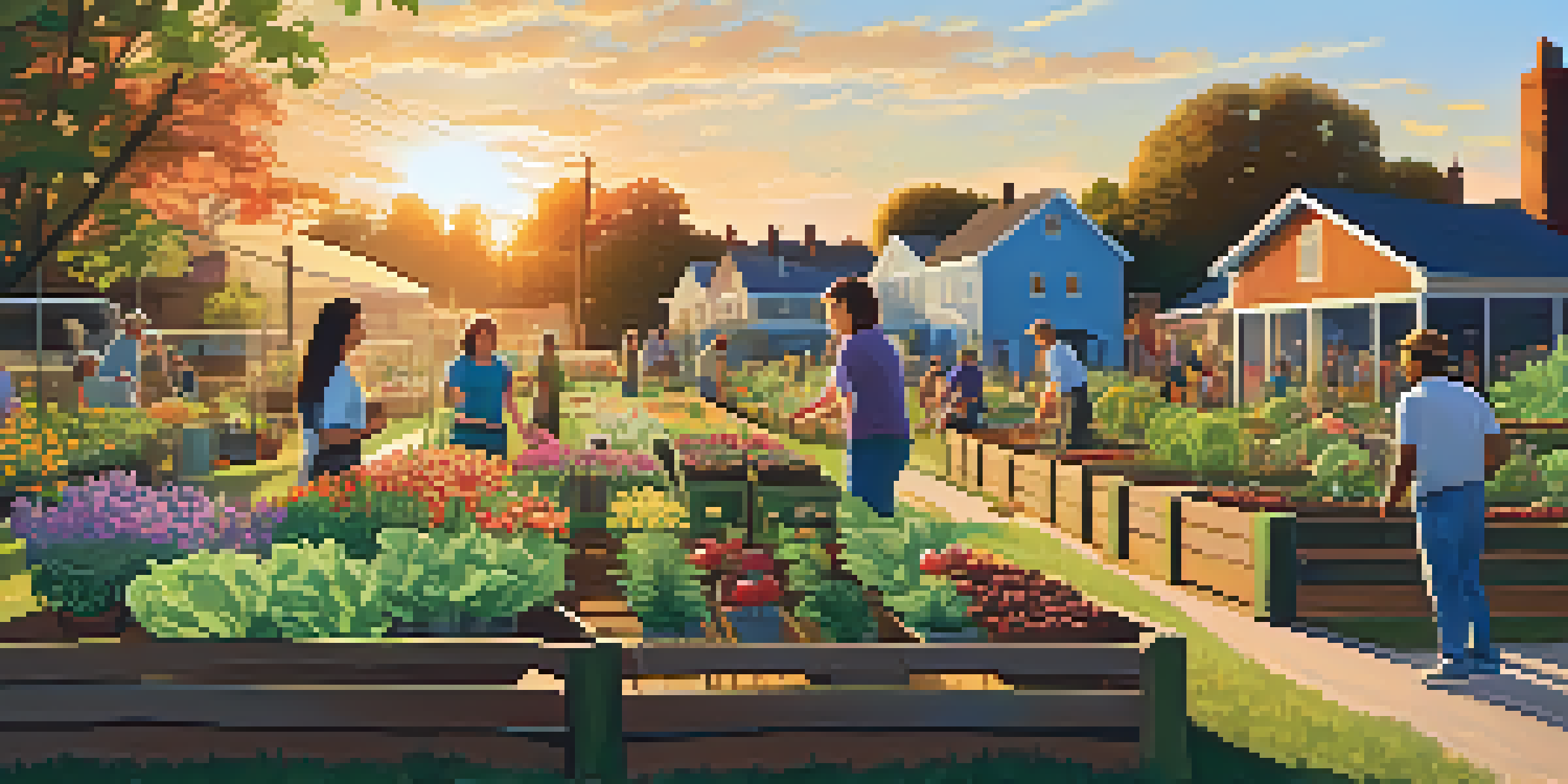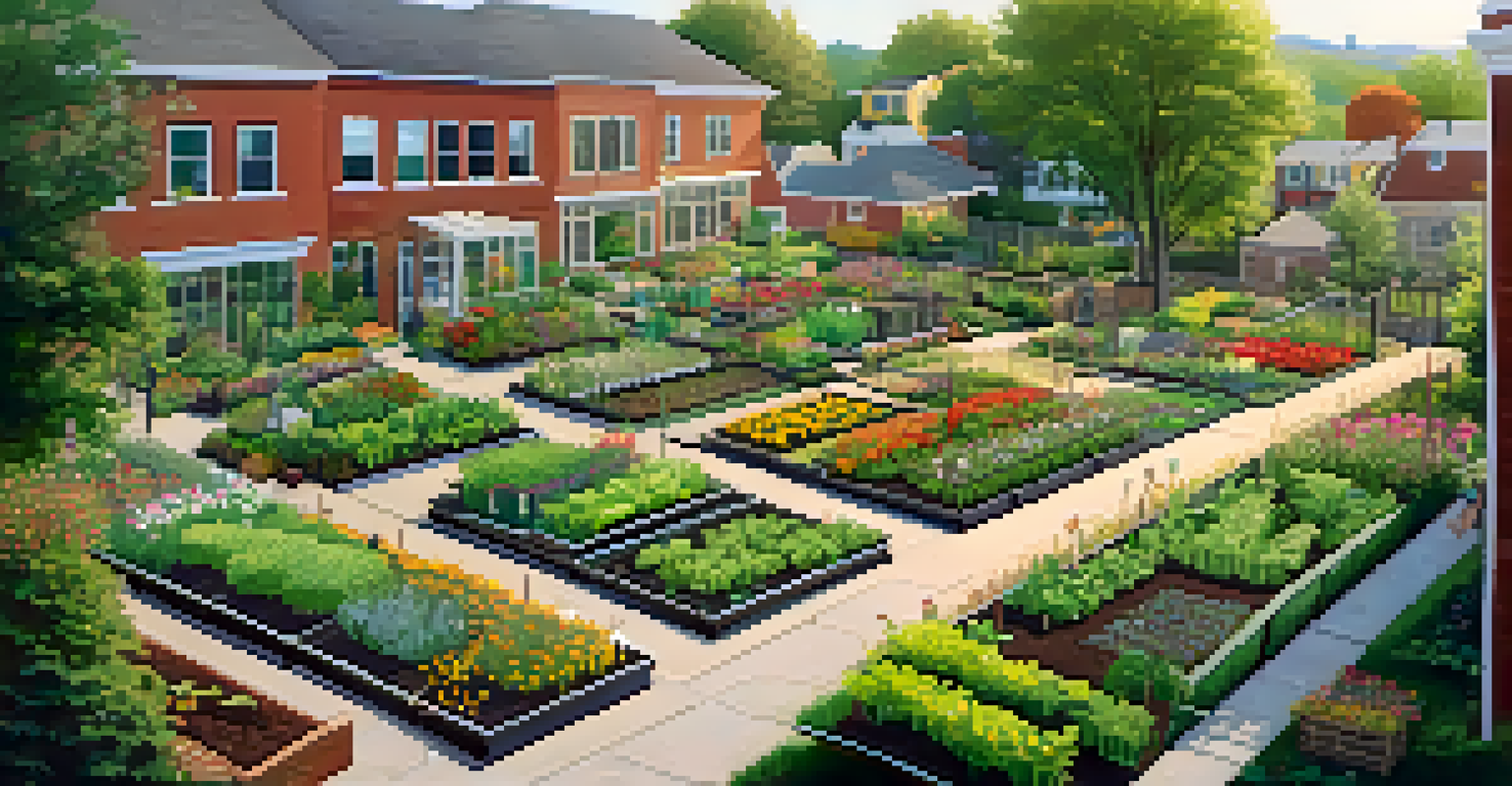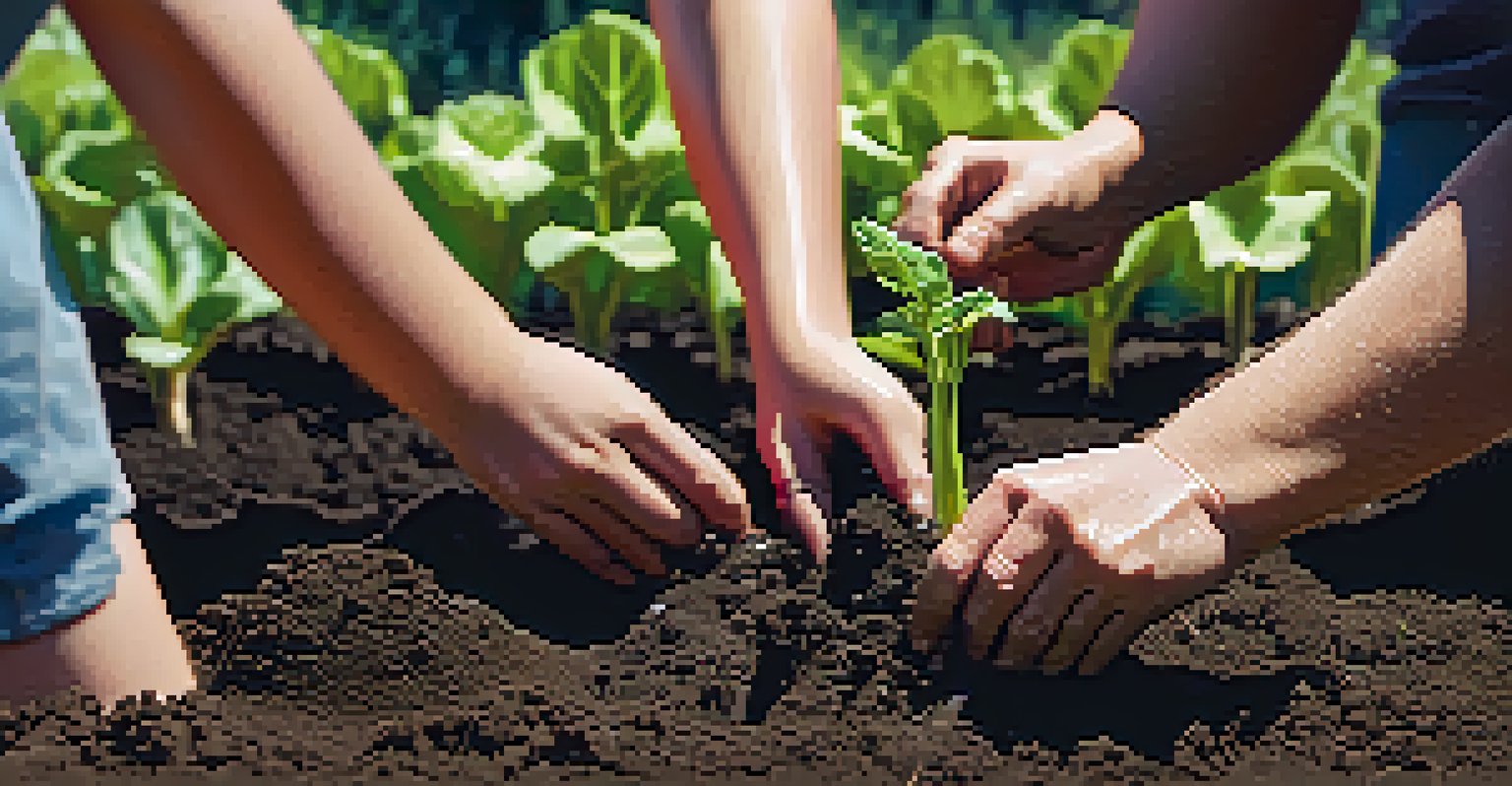The Role of Community Gardens in Carlsbad's Eco Movement

Understanding Community Gardens and Their Purpose
Community gardens are shared spaces where residents can grow plants, vegetables, and flowers. They serve not just as food sources but as places for education and community bonding. In Carlsbad, these gardens are popping up in various neighborhoods, transforming vacant lots into thriving green spaces.
The greatest threat to our planet is the belief that someone else will save it.
These gardens play a crucial role in promoting sustainability by encouraging local food production. When people grow their own food, they reduce reliance on store-bought goods, which often involve long transportation routes and packaging waste. This shift towards local sourcing can significantly cut down on carbon footprints.
Moreover, community gardens foster a sense of stewardship among residents. By taking care of a shared space, individuals become more connected to their environment and motivated to adopt eco-friendly practices in their daily lives.
The Benefits of Community Gardens for Biodiversity
Biodiversity refers to the variety of life in a particular habitat, and community gardens can enhance this variety in urban areas like Carlsbad. By planting a diverse range of species, community gardens create habitats that attract pollinators, birds, and beneficial insects. This not only supports local ecosystems but also helps maintain a balanced environment.

When more plant species are introduced, it increases soil health and resilience. Different plants have varying root structures and nutrient requirements, which can lead to improved soil conditions and reduced erosion. This is particularly important in regions prone to drought, as healthy soil retains moisture better.
Community Gardens Boost Local Ecology
By cultivating diverse plants, community gardens enhance biodiversity, attract beneficial wildlife, and improve soil health.
Additionally, community gardens can serve as important educational platforms for residents. Workshops and events held in these gardens can teach people about native plants, permaculture, and the importance of biodiversity, empowering them to make informed choices about their own gardening practices.
Community Engagement and Social Cohesion through Gardening
One of the most beautiful aspects of community gardens is their ability to bring people together. Residents from different backgrounds come together to share resources, knowledge, and experiences. This collaborative spirit fosters friendships and a sense of belonging, which is essential for a thriving community.
Gardening is a way of showing that you believe in tomorrow.
In Carlsbad, many gardens host events such as potlucks, harvest festivals, and gardening workshops. These gatherings create opportunities for social interaction, making it easier for neighbors to connect and collaborate on other community projects. Such interactions can lead to stronger neighborhood ties and a more vibrant local culture.
Moreover, community gardens often involve local schools and youth groups, providing educational opportunities for younger generations. Engaging children in gardening teaches them about responsibility, the environment, and healthy eating habits, all while building a sense of community.
Promoting Healthy Lifestyles through Gardening
Community gardens contribute to healthier lifestyles by making fresh produce accessible to residents. In urban areas, access to fresh fruits and vegetables can be limited, leading to unhealthy eating habits. By growing their own food, individuals can enjoy organic produce right from their gardens.
Gardening itself is a physical activity that encourages movement and exercise. Whether digging, planting, or harvesting, residents get to engage in a workout without the need for a gym. This physical engagement can lead to improved mental health, reducing stress and anxiety.
Gardens Foster Community Engagement
Community gardens bring residents together, creating social bonds and opportunities for collaboration through shared gardening activities.
Additionally, being involved in a community garden can inspire participants to adopt healthier eating habits. When people grow their own vegetables, they are more likely to incorporate them into their diets, leading to improved overall health and well-being.
Sustainable Practices Encouraged by Community Gardens
Community gardens often exemplify sustainable practices that can be replicated in individual homes. Techniques such as composting, rainwater harvesting, and organic pest control are commonly used in these gardens. By demonstrating these methods, community gardens serve as practical learning environments for sustainability.
For example, composting not only reduces waste but also enriches the soil, promoting healthier plants. Gardeners can learn how to recycle kitchen scraps and yard waste, minimizing their impact on landfills. This hands-on experience can inspire participants to adopt similar practices in their own households.
Furthermore, the focus on organic gardening helps to reduce chemical runoff into local waterways, which is crucial for protecting Carlsbad's coastal ecosystems. By encouraging natural pest control and organic fertilizers, community gardens contribute to a healthier environment.
Economic Benefits of Community Gardens in Carlsbad
Community gardens can also provide economic benefits to the local community. They reduce food costs for participants by allowing them to grow their own produce. This is particularly important for families on a budget who want to access fresh, nutritious food without breaking the bank.
Additionally, these gardens can stimulate local economies by creating opportunities for small businesses. For instance, gardeners may sell surplus produce at farmers' markets or local stores, generating income while promoting local agriculture. This entrepreneurial spirit can contribute significantly to Carlsbad's economic landscape.
Sustainable Practices from Gardening
These gardens promote sustainable techniques like composting and organic pest control, encouraging residents to adopt eco-friendly habits at home.
Moreover, investing in community gardens can enhance property values in the surrounding areas. Green spaces are often seen as desirable amenities, making neighborhoods more attractive to potential buyers. This increase in property value can lead to greater community investment and involvement.
The Future of Community Gardens in Carlsbad
As Carlsbad continues to grow, the future of community gardens appears bright. With increased awareness of environmental issues and the importance of local food systems, interest in gardening is on the rise. This trend suggests that more community gardens will emerge, fostering further sustainability initiatives.
Local governments and organizations are recognizing the value of these gardens and may implement policies to support their development. This could include providing funding, land access, or educational resources to help new gardens thrive. Such support can enhance the impact of community gardens on Carlsbad's eco movement.

Ultimately, the continued success of community gardens will depend on community involvement and commitment. As residents rally around these green spaces, they not only enhance their neighborhoods but also contribute to a more sustainable and connected Carlsbad.